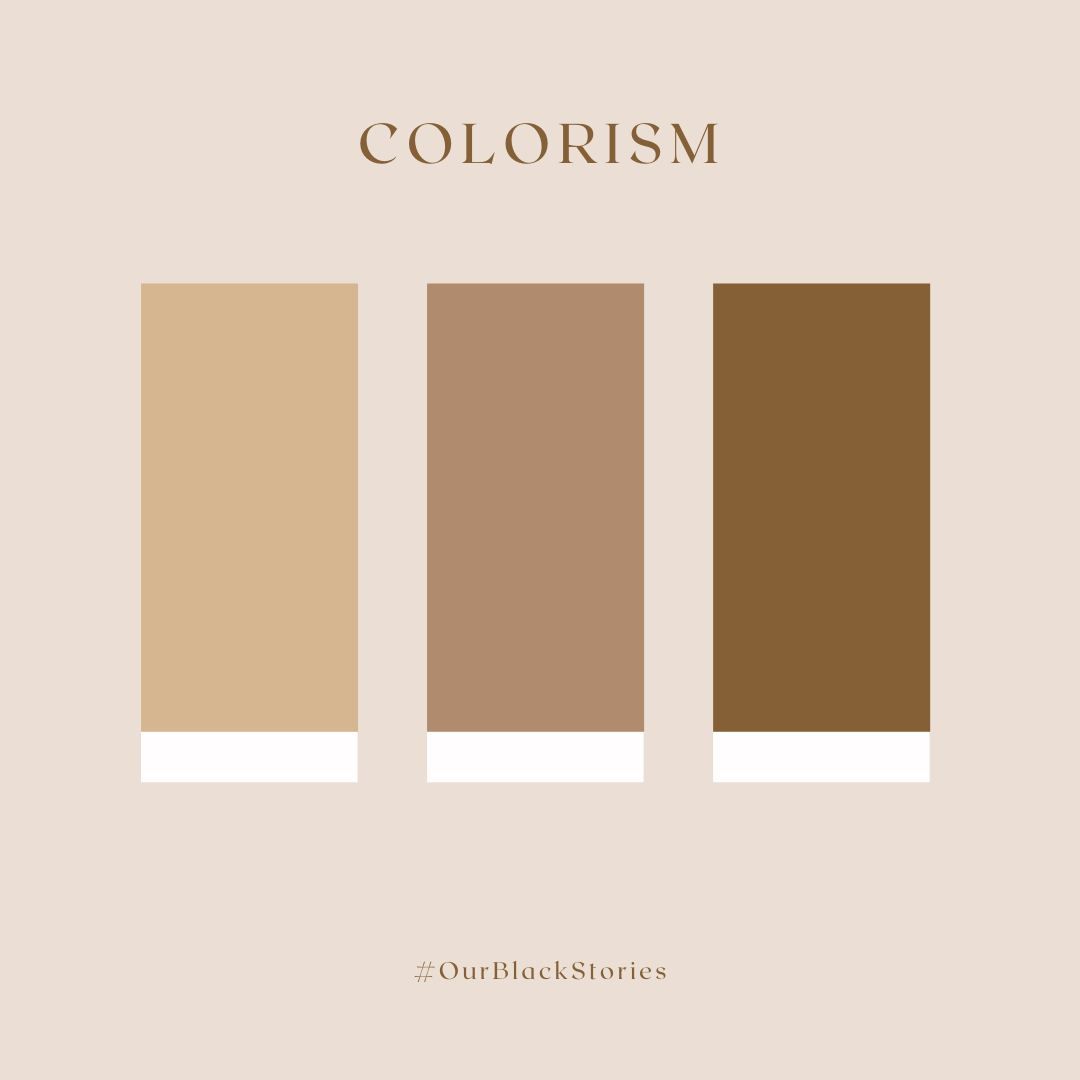“Is that your mom?” A kid said as they pointed out a white woman that had just come into the classroom. It was my first year in public school and I was confused because of course, that white woman wasn’t my mother. At the young age of 7 I didn’t know why anyone would assume that she was.
“Any type of man would like someone who looks like you” Said an elderly white man who was my substitute teacher. This was in response to my explanation of colorism; I was writing a paper on it for my sociology class. I assume he meant well, but was ignorant to the implications of that statement.
“My grandparents would love YOUR kind of black.” said a white male college classmate in the cafeteria after class one winter day my freshman year. He had asked me to have lunch with him and I hesitantly agreed. But after that comment, I regretted my decision.
Colorism is the sneaky second cousin to racism. It has deep roots of self-hatred, planted by slavery and the systemic racism that operated (and still operates) in our nation today. In slavery, it looked like placing darker-skinned slaves in the fields and lighter-skinned slaves in the house. Creating division between black people was intentional. In fact, Willie Lynch advised slave owners to use this method to disintegrate unity amongst slaves.
These practices were maintained by black people even after slavery was over. Some churches, sororities and other organizations used the “brown paper bag test” to deny or grant access to certain events.
The main idea: The closer you are to whiteness, the better you are. The more Eurocentric your features are, the more prestige and privilege you gain.
The color of your skin.
The texture of your hair.
The way you talk or act.
All of these things were barometers that moved you closer to where you needed to be to “succeed” in the world.
You might think that this is all ancient history; that no one does that now. But, look around. Even in the year 2021 the deep claws of racism and colorism are still seen today. Black bodies are often weaponized. Dark skin and kinky hair has a deep history in making some people feel very uncomfortable; and that’s just a truth that we have to face. Look around: at commercials and music videos, the most popular black actresses and actors. Although we are making progress; there’s still a trend of seeing very few brown faces on our television screens.
You see, I have privilege. There are some things that I will NEVER experience just because my skin is lighter. No one has ever followed me around a store. No one has ever clutched their purse tighter when I walked by. This isn’t a post to whine about the injustices I have experienced (I haven’t) its to shine a light on my other brothers and sisters who have more melanin than I do. And experience way worse than I ever have.
Ambiguity is often praised. People used to constantly ask me if I was biracial or mixed; and after explaining that I was black, couldn’t seem to take that for an answer. For some reason, being black just wasn’t enough. It wasn’t exotic enough or beautiful enough.
Yes, my lightness brought it’s own complexities; but only because it was rooted in the mires of colorism. My prayer is that we can all embrace our beautiful skin tones, our hair, our facial features. That we won’t feel the need to compare or alter our appearance to fit a mold. That we would recognize blackness comes in many colors and that each one is valued. That we wouldn’t continue to allow division to exist on the basis of color or texture.
That we would look in the mirror, and see our ancestors smiling back at us.
That we would learn to love ourselves and then in turn begin to truly love our God-given blackness.

